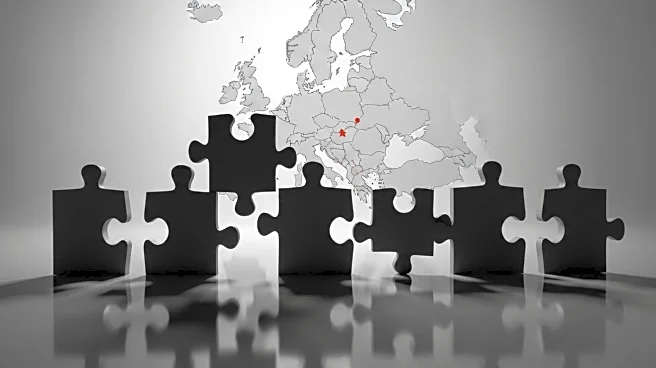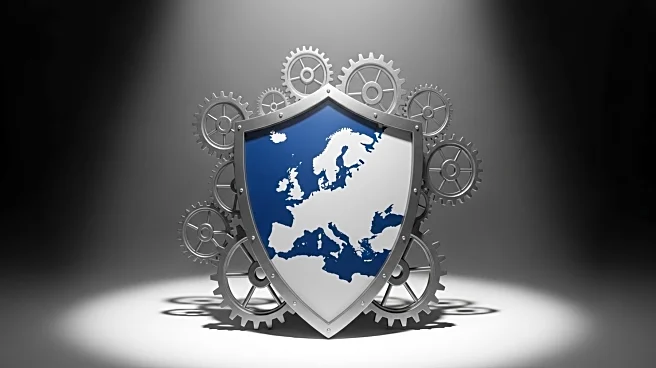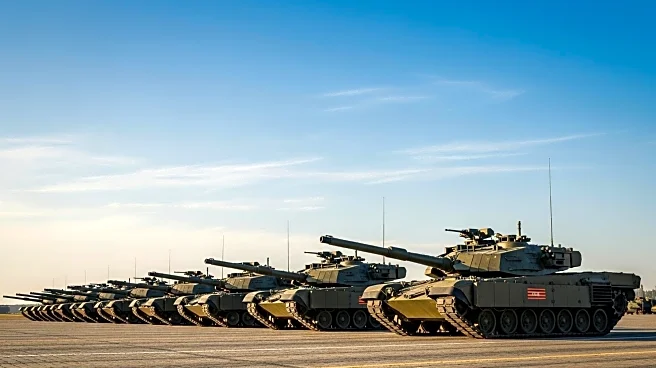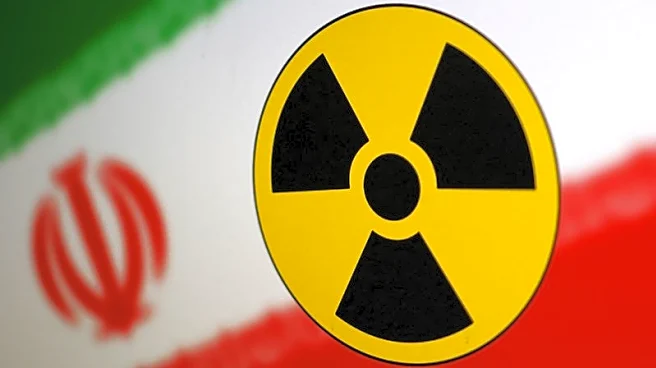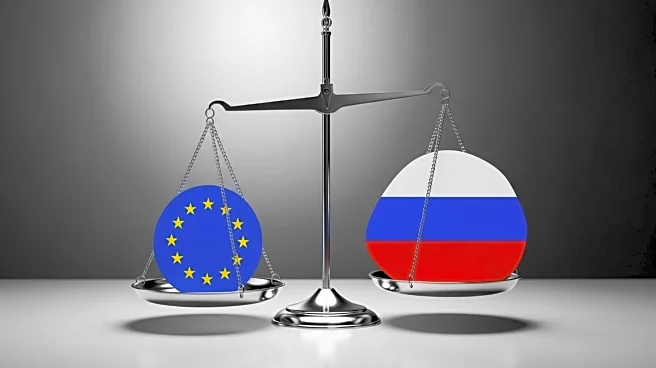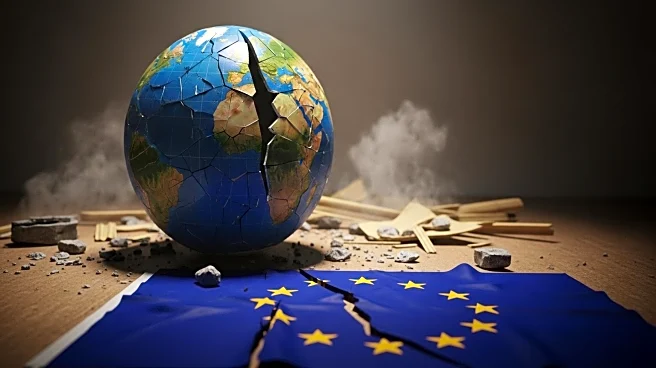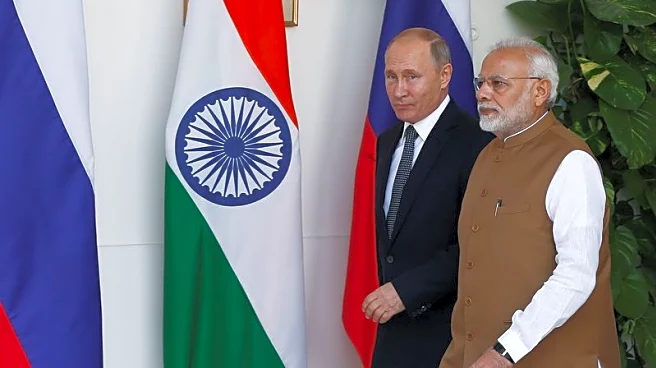What's Happening?
The European Union is contemplating the activation of its 'Anti-Circumvention Tool' to impose sanctions on countries aiding Russia in circumventing existing sanctions. This tool, introduced in 2023, targets nations that facilitate Russia's acquisition of goods and materials restricted by Western sanctions. The EU's foreign affairs ministers are meeting in Copenhagen to discuss the potential inclusion of this tool in the 19th package of sanctions against Russia. The tool has never been used before and requires unanimous approval from all 27 member states. The EU has accused China of supplying 80% of the components used by Russia to manufacture weapons, highlighting the geopolitical complexities involved in sanctioning Russia's allies.
Why It's Important?
The potential activation of the 'Anti-Circumvention Tool' signifies a significant escalation in the EU's efforts to pressure Russia economically. If implemented, these secondary sanctions could have widespread diplomatic repercussions, particularly with major economies like China, which is accused of being a key enabler of Russia's war efforts. The move could strain international relations and impact global trade dynamics, as countries targeted by these sanctions may retaliate. The decision also reflects the EU's determination to tighten sanctions against Russia, despite the challenges of securing unanimous support among member states.
What's Next?
The EU's decision on whether to activate the 'Anti-Circumvention Tool' will depend on the outcome of diplomatic consultations and data analysis. If approved, the tool could prohibit the sale and transfer of goods and technology to Russia, affecting entire nations rather than individual companies. The EU must navigate the diplomatic pitfalls associated with these sanctions, as member states may be wary of antagonizing other countries. The Trump administration's stance on increasing sanctions pressure on Russia could influence the EU's decision, as the U.S. might support a hard-hitting package.
Beyond the Headlines
The activation of the 'Anti-Circumvention Tool' could set a precedent for how international sanctions are enforced, potentially leading to more aggressive measures against countries that enable sanctioned states. This approach raises ethical questions about the balance between economic pressure and diplomatic relations, as well as the long-term impact on global alliances and trade networks.
